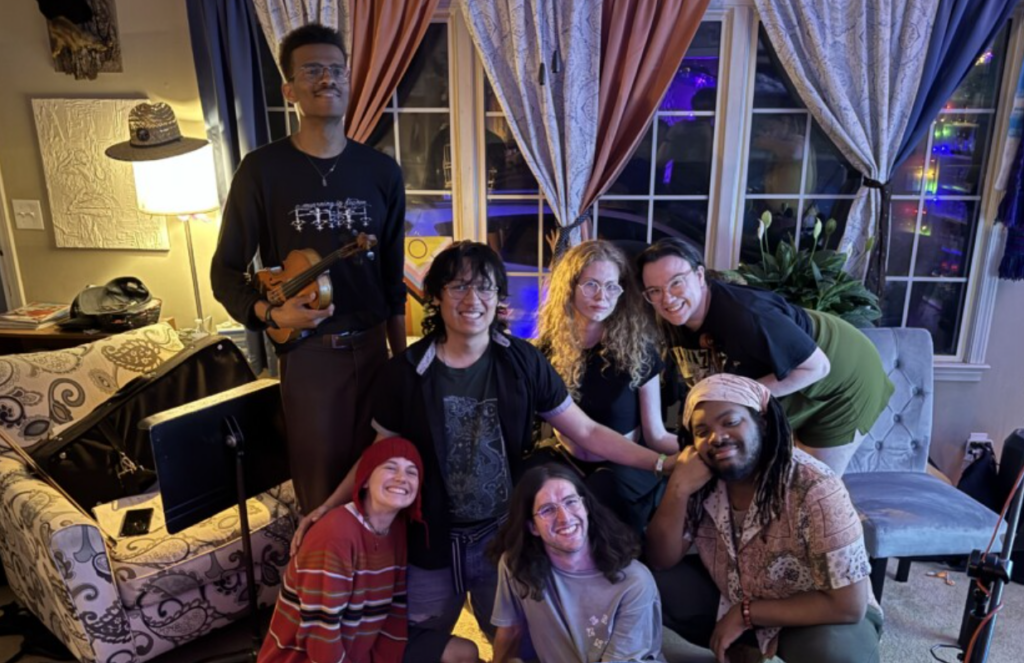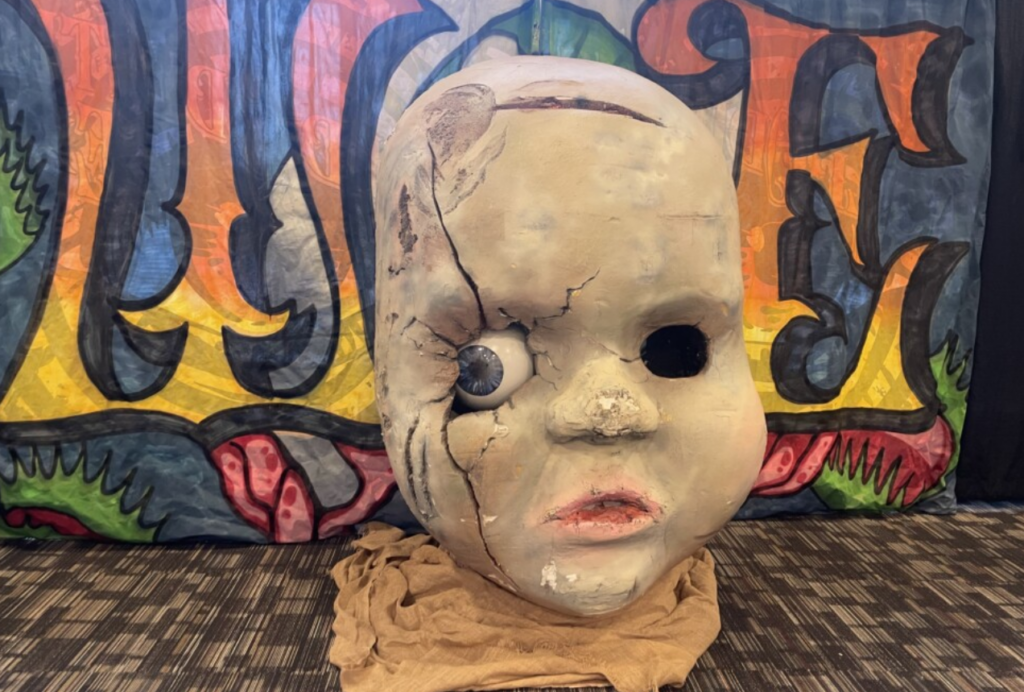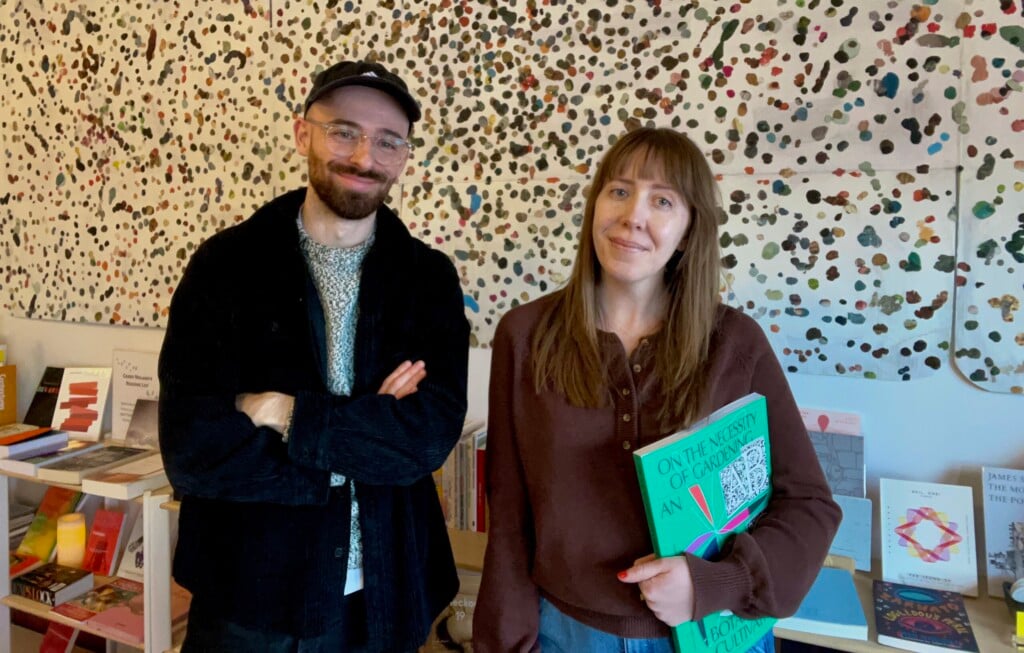Unicorn Theatre’s fire work stages dystopian collision between Charles Schulz and child labor
Pulling from Mad Max, Oliver Twist, and Disco Elysium equally, you'd be remiss to not catch one of the final performances of "You're a Good Comrade, Charlie Brown!"
Each dip into The Unicorn’s world premieres or mid-workshopped plays has felt like a breath of fresh air, especially in the last few months. Major movie releases have been on an unbreakable tepid streak, most of my favorite TV shows are wrapping up, and every podcast I listen to is about the same thing: just how Very Bad Things Are. In that time, Unicorn has repeatedly delivered unexpected, left-field home runs that I feel, on a personal level, thankful for.
It’s with that in mind that their new show, fire work, comes as such a disappointment. Amid a line-up of resoundingly original voices and perspectives, here we have something that simply recycles the same old well-worn ground. I think we can all point to a half-dozen other plays and musicals centered on small children forced to work in factories and mines, who forego the bonds of crushing capitalism and rise up in violent revolt against the bourgeoisie and the shackles of socio-economic slavery. I mean… do we really need another take on this cliched genre???
Sorry. There’s no good font for indicating sarcasm for the scale of that paragraph. I couldn’t not write it, though. From the moment I read the announcement, I worried that I would be near religiously amped for a play centered on small children forced to work in factories and mines, who forego the bonds of crushing capitalism and rise up in violent revolt against the bourgeoisie and the shackles of socio-economic slavery. And fire work does not disappoint.
Among all the good-to-god-tier shows KC theater has produced in the last year, this is the only one I’ve attended twice. It isn’t just beautiful in its imagination and dedication; it is perhaps vital to the current moment.
Also, kids play a ball game on stage called “Eat the Rich” where one player is the designated “Class Traitor” and I, for one, think everyone should get to see that in 2025.
Director Katie Gilchrist and playwright Mary Glen Fredrick set the scene of a dystopian industrial hellscape, where a group of children aged 6 to 12 live alone in the ruins of whatever came before. They work long hours of grueling labor in a struggle to stay alive—and even to help fiscally support their own parents, wherever they might be. Despite the bleak conditions, the youth are enraged by a new law that the local politicians seem set to approve: banning child labor for those under a certain age. What should seem like progress is instead met with feral frustration as the kids themselves move to stop said legislation for fear that they will be unable to work and, therefore, die penniless.
fire work is exactly what we yearn for when we crave clever satire, and the Orwellian comedy of the whole thing does what satire has failed to do in our modern era: find a way to escalate beyond how fucking bad things have gotten. Just as the writers of Black Mirror can attest, staying ahead of the crashing curve of techno-fascism has become an unstable model for fiction at a time when the world is accelerating into Hell so expediently that predictions of future worst-case scenarios may have already come to pass by the time your tale of late-stage capitalism woe can be seen by others.
Case in point: mid-review write-up, my phone decided this breaking news was important/relevant to my day -> “Florida debates lifting some child labor laws to fill jobs vacated by undocumented immigrants” [CNN]
Among peers who caught the production, several compared this dystopian arrangement of children living alone and building their own world (in which survival was somehow plausible) to that of Peter Pan’s Lost Boys. I saw a more direct parallel with a sort of one-to-one of a different fictional child crew, and perhaps with a more apt creator’s message serving as a throughline: Charles Schulz’s Peanuts.
If you’re unable to catch the show, but want to have a pretty good idea of the whole production in your head, run with this: Charlie Brown and Lucy are struggling in domestic despair as Peppermint Patty rallies the rest of the schoolyard to revolution. Sally is in danger of falling into machinery at her factory, Marcy is quickly becoming a Marxist, Snoopy has been rendered mute by forced labor digging in the mines, and all of this takes place to the benefit of the robber baron, Linus.
Not only does it feel like an updated version of Schultz’s own perspective on oppression in the world, there are few better parallels in modern fiction for the delivery and character grounding of this cast. Six and seven-year-old characters can talk about childish entertainment or engage in recess-like games, then turn on a dime to doctorate, adult-level self-examination of Maslow’s Hierarchy, Napoleonic-era warfare, the limitation of monogamy, or socio-economic class struggles.
Again, few places outside of Schulz would feel so natural, so at home, and so painfully of the moment, no matter when this tale is set. Like the violent frustration of an animal forced to gnaw off its own arm to escape a trap, no recent original stage play has made the audience laugh while tasting the blood of the moment so memorably. Pulling from Mad Max, Oliver Twist, and Disco Elysium equally, you’d be remiss to not catch one of the final performances of You’re a Good Comrade, Charlie Brown!
It comes with our highest recommendation.
fire work runs at The Unicorn Theatre (3828 Main St.) now through March 30, 2025. Tickets are available here.









